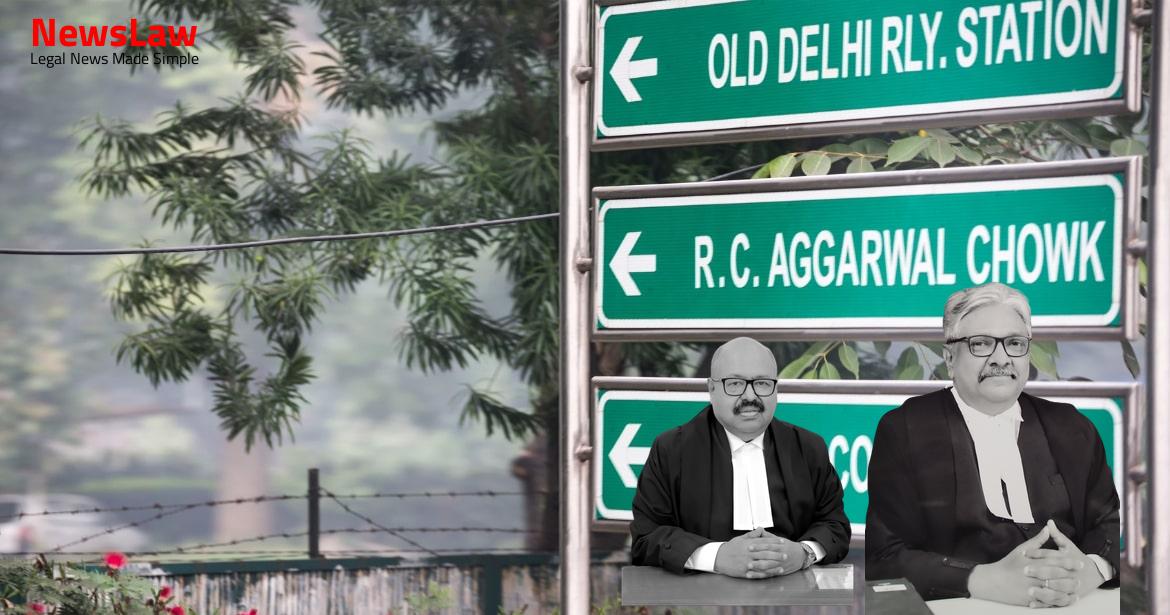Delve into the intricate legal analysis provided by the court in a recent case concerning a confiscation order in a cattle transportation scenario. The court meticulously examined the provisions of relevant acts, including distinguishing between confiscation proceedings and criminal prosecution. This blog elucidates the court’s stance on the confiscation order, shedding light on the critical legal considerations at play.
Facts
- Crime No.102/2013 registered at Police Station Kannad, District Agar Malwa for offences under Sections 4 and 9 of the 2004 Act read with Section 11 (d) of the Prevention of Cruelty to Animals Act, 1960.
- Appellant charged under different sections of the Motor Vehicles Act.
- Primary challenge in this appeal is to the Confiscation Order dated 09.08.2017 for the appellant’s truck (bearing No.MP/09/GF/2159) passed by the District Magistrate, Agar Malwa under Section 11(5) of the M.P. Prohibition of Cow Slaughter Act, 2004 and Rule 5 of the M.P Govansh Vadh Pratishedh Rules, 2012.
- Confiscation order affirmed on 22.9.2018 by the Court of Additional Commissioner, Ujjain.
- Revision Petition challenging the confiscation order dismissed by the Additional Sessions Judge, Ujjain in the Criminal Revision No.211/2018.
- Vehicle seized and accused persons, including the truck owner, charge-sheeted for the offences.
- Veterinary doctor (PW4) mentioned that the animals were healthy and fit for agricultural purpose.
- The appellant’s truck, with 17 cow progeny, was intercepted and the driver along with another person were arrested.
- All accused were acquitted of charges under the 1960 Act and Section 4 read with Section 9 of the 2004 Act.
- The main witnesses and Investigating Officer did not testify on the accused’s involvement in intended cattle slaughter.
- The District Magistrate ordered confiscation of the truck despite the acquittal of the accused, citing violation of the 2004 Act.
- The Trial Court found the prosecution’s case of proposed slaughter unsupported by medical evidence.
- The judgment concluded that the prosecution failed to prove that the cow progeny was being transported for slaughter under the 2004 Act.
Also Read: Insurance Claim Repudiation due to Fire Incident: Court’s Legal Analysis
Arguments
- The State’s counsel refers to Section 13A of the 2004 Act stating that the burden of proof lies on the accused when prosecuted under the Act.
- Refers to the evidence of Veterinary Assistant Surgeon, Arvind Mahajan (PW-4) to justify confiscation of the truck based on PW-4’s evidence.
- The High Court upheld the confiscation order by the District Magistrate, reasoning that separate proceedings for prosecution of accused and confiscation of vehicles/equipment are legally maintainable.
- Appellant’s counsel cites a Madhya Pradesh High Court decision where confiscation of a vehicle under the 2004 Act was deemed unwarranted without the commission of a criminal offense.
- State’s counsel argues that confiscation and criminal prosecution can run parallelly based on various judgments.
Analysis
- The 2004 Act is punitive and deterrent in nature.
- The 2004 Act specifically applies the provisions of CrPC in relation to search and seizure.
- Section 13A of the 2004 Act shifts the burden of proof in prosecution, not confiscation proceedings.
- Confiscation proceedings and criminal prosecution are distinct processes.
- The High Court’s direction to release a seized vehicle was found to be contrary to the law.
- Section 52-C of the Forest Act, 1927 limits jurisdiction in confiscation proceedings.
- The District Magistrate has power to adjudicate cases of violations under the 2004 Act independently.
- Once confiscation proceedings are initiated, the jurisdiction under Section 451 CrPC is not available to the Magistrate.
- The High Court may entertain petitions under Section 482 CrPC for quashing confiscation proceedings initiated under the 2004 Act.
- The non-obstante clause in Section 52-C(1) gives overriding effect to the legislation.
- An order of confiscation deprives a person of property, requiring the State to prove illegal acquisition or public interest warranting deprivation.
- Case of State of W.B vs Sujit Kumar Rana highlighted the need for a Competent Court finding before absolute vesting of seized property.
- State of M.P Vs. Madhukar Rao emphasized ‘commission of an offence’ as a requirement for confiscation orders.
- Power to confiscate under Section 15 of the Adhiniyam can be exercised before guilt is fully established based on usage during the commission of a forest offense.
- Judicial rulings in cases like State of M.P Vs. Uday Singh and Kallo Bai support the independent power of authorities for confiscation irrespective of the guilt being completely proven.
- Confiscatory proceedings under acts like the Indian Forest Act, 1927 are separate from main criminal cases, aimed at deterrence and prevention of further misuse of property.
- Confiscation of appellant’s truck after acquittal in criminal prosecution is deemed arbitrary.
- Such action violates the right guaranteed to each person under Article 300A.
- District Magistrate’s order of confiscation, despite the acquittal in the Trial Court, is inconsistent with legal requirements.
Decision
- The High Court’s decision has been overturned.
- The District Magistrate’s confiscation order is declared unsustainable.
- The confiscation order is deemed invalid based on the aforementioned reasons.
Case Title: ABDUL VAHAB Vs. THE STATE OF MADHYA PRADESH (2022 INSC 263)
Case Number: Crl.A. No.-000340-000340 / 2022



